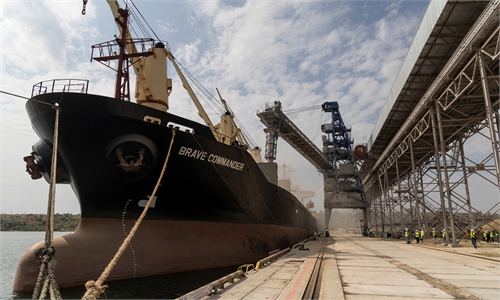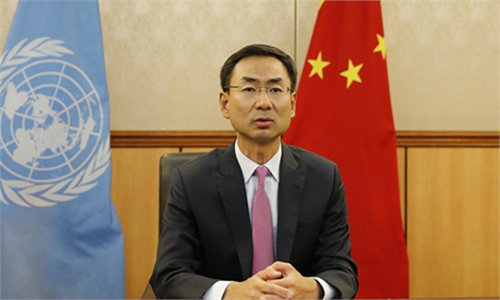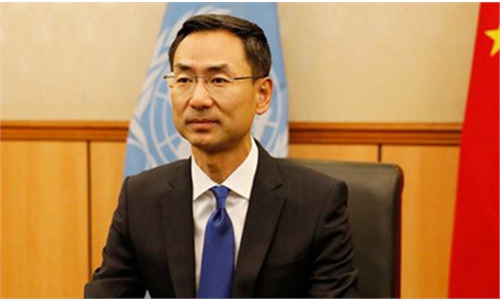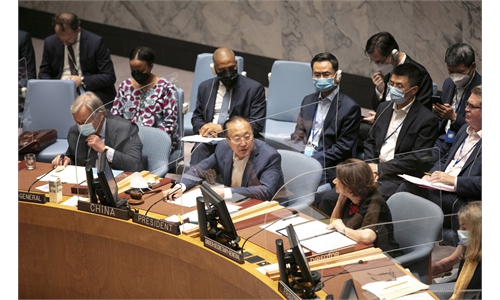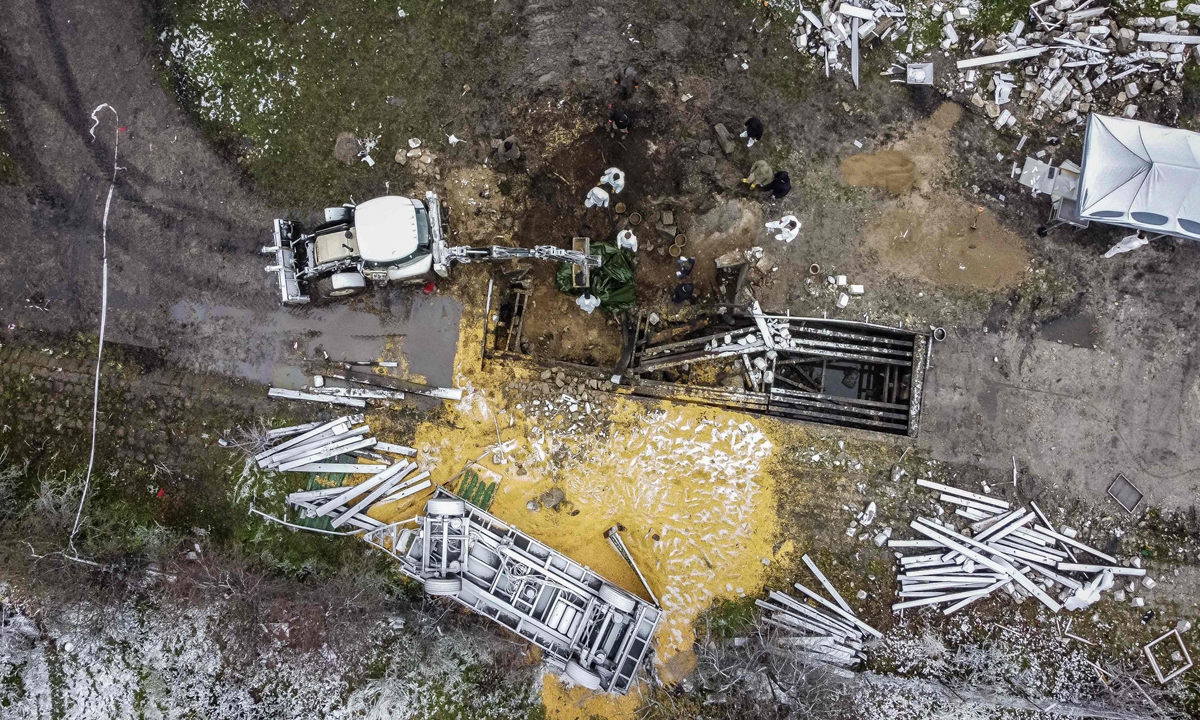
Aerial view taken on November 17, 2022 shows the site where a missile strike killed two men in the eastern Poland village of Przewodow, near the border with Ukraine on November 15, 2022. Photo:VCG
The explosion that killed two people on Polish territory appears to have been caused by a Ukrainian air-defense missile, said leaders of Poland and NATO on Wednesday. Fierce discussions on the incident have revealed an increasingly divided West, as fatigue grows over prolonged conflict with no peace talks in sight, experts said.
The blast occurred in the eastern Polish village of Przewodow, about 6.4 kilometers west of the Ukrainian border on Tuesday afternoon, according to media reports.
Results of the investigation into the matter show that what had struck the region was an S-300 missile, a munition that both Russia and Ukraine possess.
While Ukrainian President Volodymyr Zelensky said he has "no doubt" it wasn't their missile, NATO Secretary General Jens Stoltenberg believed the incident was likely caused by a Ukrainian air defense missile, adding that there was no indication it was the result of a deliberate attack, nor signs that Russia was planning to attack NATO countries.
However, the kind of rhetoric that Zelensky is using is "beginning to exhaust the patience of some Western diplomats," reported BBC on Wednesday. The shift in tone is also evident in a CNN report, which accused Zelensky of appearing intent on "capitalizing on the episode."
"They fear that Kiev's at times maximalist language and demands risk adding to so-called 'Ukraine fatigue' among allies," said BBC.
Experts noted a sharp contrast in tone that the US and major European countries are holding toward Russia compared with the past, as they have now taken the initiative to dispel rumors for Moscow rather than blame it in disregard of the facts.
"The US-led West does not want to further fan the fire to an extent that they have to actually engage militarily with Russia. They do not want to become more deeply embroiled in the conflict," Cui Heng, an assistant research fellow from the Center for Russian Studies of East China Normal University, told the Global Times on Thursday.
However, Ukraine's insistence on refusing to talk has drained the West's patience, the expert said. "Now they find themselves kidnapped by so-called politically-correct decisions," Cui noted.
In contrast with the attitudes of major Western powers, Baltic states were quick to call on the collective defense of NATO.
The President of Lithuania Gitanas Nauseda declared that "Every inch of NATO territory must be defended!" And others said the incident suggests even greater military support for Ukraine.
"The rift between the old and new Europe is being magnified. Baltic states and Eastern Europe have been jumping the highest in their anti-Russia stance. For them, it is not only a gesture of their return to the West, a manifestation of their loyalty to Europe, but also a demand for unifying ideology at home," Cui said.
In general, the "accident" has tested the bottom line of NATO - that it will not have direct confrontation with Russia - and this has ruled out risks of further fueling the conflict, experts said.
